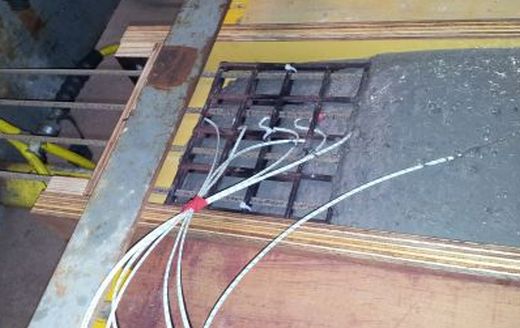Materials
Research and development of multifunctional materials for the building industry has a long standing and successful tradition at Empa and will also be continued in the future. In this context research and patents by Empa researchers focus on new properties of wood based materials such as e.g. fire retardancy, dimensional stability, biological, water or UV resistance. Furthermore, innovative pre-stressing materials for structural concrete were recently developed: iron-based shape memory alloys allow an in situ pre-stressing of concrete for strengthening and upgrading bridge, tunnel and building elements, while the recent development of highly durable expansive concretes allows the pre-tensioning of non-metallic reinforcements for precast concrete elements with reduced processing costs and a smaller ecological footprint, for example CO2 emissions. Numerical material modelling allows efficient design of novel systems and always represents a crucial part of Empa’s research activities.

Reducing the environmental footprint of construction materials is one of the main goals in the module Materials. To achieve this we employ a variety of innovative approaches such as the drastic reduction of cement clinker in concrete by employing combinations of mineral admixtures and fillers, while at the same time optimizing the packing and the rheological properties of the concrete.
A further focus will be on recycled, re-used, marginal and alternative construction materials. Recycling has great ecologic and cost-saving potential in road pavements, for instance; here one research focus is on achieving a higher durability for recycled pavements.

-
Share
